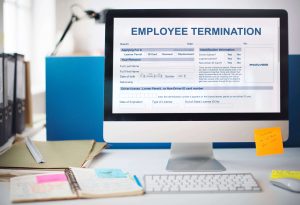Every year, more than 3,000 pregnancy discrimination charges are filed with the U.S. Equal Employment Opportunity Commission. And every year, employers pay millions of dollars to settle those cases in order to avoid a trial.
Will your case result in a large settlement before trial? That depends on the quality of your evidence and the experience of your lawyer.
What is Pregnancy Discrimination?
The law protects pregnant women from discrimination in the workplace. For example, an employer may not offer a woman employment and then withdraw the offer after learning that she is or plans to become pregnant. An employer also may not change a woman’s terms and conditions of employment in a negative way because she is pregnant. A negative change in terms and conditions of employment may include changing her job responsibilities, denying her a raise or promotion, harassing her and creating a hostile work environment, forcing her to take a leave of absence, or terminating her employment because she is pregnant or intends to become pregnant.
At the same time, the law requires that employers provide reasonable accommodations for employees who are pregnant or have medical conditions related to their pregnancy. An accommodation may include something as simple as allowing time off for medical appointments or providing a place to rest during the workday. It may also include changes in the job duties of a pregnant employee if the employer would agree to such changes for an employee with a temporary disability unrelated to pregnancy.
As you can see, the law is complicated and confusing. Employers are not allowed to unilaterally change a woman’s terms and conditions of employment in a negative way because she is pregnant, but they may be required to change her terms and conditions of employment if she requests an accommodation.
In a perfect world, the process would be simple. A woman would speak to her employer about her pregnancy-related needs, receive a reasonable accommodation so she would have no stress during the most important time of her life, continue to work and earn a living until her baby arrives, and know that she could return to work when she is ready.
Unfortunately, too many employers think only about the short term. They react badly while thinking about how they will cover the pregnant woman’s job responsibilities when she gives birth and takes maternity leave. Or what will happen when the woman wants to return to work. By focusing on these short-term, temporary issues, employers often make stupid decisions that cause serious harm to the pregnant woman (and do not help the company in the long run anyway).
That is where the law comes in to protect your rights. If your employer discriminates against you because you are pregnant, refuses to give you a reasonable accommodation, or retaliates against you for complaining of discrimination, then the law will make the employer pay. You may also be entitled to reinstatement, a promotion, and/or a raise if you want to continue working for them.
How to Convince Your Employer to Settle Your Pregnancy Discrimination Claim
Before starting this law firm to protect the rights of employees, I was a partner in a large law firm representing employers in discrimination lawsuits. So, I know how employers think when it comes to deciding whether or not to settle a pregnancy discrimination case.
The first factor is the evidence. When an employee has taken the time to gather and organize her evidence of discrimination, that sends a signal that she is serious about pursuing her claims.
The second factor is the employee’s lawyer. Is the lawyer someone who takes on every case, does very little work to prepare, and then settles quickly for small amounts? Or is the lawyer someone with decades of experience, who takes on a small number of significant cases, prepares thoroughly, and is ready to go to trial if necessary to win the maximum amount of compensatory and punitive damages?
Employers tend to settle cases when the employee has an experienced lawyer who is prepared and ready to go to trial if necessary. It is very costly for employers to defend an employment case. And if the employer loses, they will have to pay compensatory damages, the plaintiff’s attorney fees, and often punitive damages too. They could also face disruptions inside the company and negative publicity in the media if the case goes to trial.
The last thing an employer wants to do is fight with a lawyer who is ready, willing, and able to try the case. When an employer sees that a pregnant employee has gathered her evidence and retained a lawyer with real trial experience, they start thinking about settling the case long before it gets to a jury.
How to Get Started
The first step is working with a qualified employment attorney to prepare a strong case. You need someone who understands how federal and state laws protect pregnant employees – and who has extensive trial experience. That will send a message to the employer that you are prepared to take the case to trial if they do not agree to a reasonable settlement.
We have represented clients in employment discrimination cases for more than 30 years. Our experience includes jury trials, appeals, and some of the largest employment discrimination settlements in U.S. history. When you retain us as your lawyers, we level the playing field by giving you the same high-quality, aggressive representation that large employers receive.
The process begins with a conversation. Call us today at (212) 601-2728 to schedule a free and confidential consultation. We will listen to your concerns, review your evidence, and explain your options. If you have a strong case, we will represent you on a contingency fee basis – which means that you will not owe us any legal fees unless you win.











